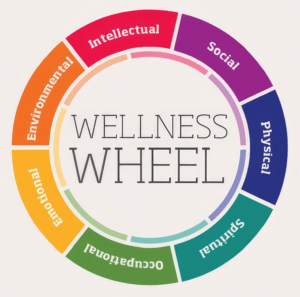How do emotions influence our health?
Emotions are psychophysiological reactions that we all experience daily even if we are not always aware of it. They are universal in nature, quite independent of culture and generate changes in affective experience, physiological activation and expressive behavior. They arise in relevant situations that involve danger, threat, damage, loss, success, novelty… and they prepare us to be able to give an adaptive response to that situation.
Throughout our evolution as a species, thanks to emotions we have been able to respond quickly to those stimuli that threatened our physical or psychological well-being, guaranteeing our survival. In addition to this primary adaptive function, emotions fulfill a social and a motivational function.
The Role of Emotion in Human Behavior
Emotions facilitate social interaction, allowing the communication of affective states and promoting prosocial behavior. Furthermore, emotions energize motivated behavior, characterized by its direction and intensity. An emotionally charged behavior is executed more vigorously and effectively, adapting to the demands of the environment.
Negative Emotions and Their Impact on Health
Fear, Anxiety, Anger and Sadness
Emotions such as fear-anxiety, anger, sadness-depression and disgust are basic emotional reactions that are characterized by an unpleasant affective experience and high physiological activation. These emotions are particularly relevant in the study of the health-disease process.
Adaptive and Maladaptive Responses
At first, emotions are considered adaptive, depending on how the person evaluates the stimulus. However, individual perception can lead to maladaptive responses. This occurs when negative emotions persist after the initial stimulus has disappeared, which leads to overexertion for the body and can translate into physical and mental health disorders.
Relationship between Emotions and Cardiovascular Disorders
Depression has been identified as a significant risk factor for coronary heart disease, myocardial infarction, and cardiac mortality. Likewise, anger and hostility have also been associated with coronary artery disease and other cardiovascular symptoms, especially in women.
Stress and Hypertension
Stress is another relevant factor in cardiovascular disorders. The World Health Organization has recognized its influence on hypertension, although it admits that its exact quantification remains a challenge.
The Relationship between Emotions and General Health
There is a close relationship between emotions and health. Emotional reactions can generate physical, cognitive or behavioral symptoms in different people, such as headaches, digestive disorders, excessive worry or even addictions. Each person presents a different alarm symptom when faced with excessive emotional burden.
The Value of Positive Emotions
Theory of Positive Emotions
Barbara Fredrickson has developed the Open and Constructed Theory of Positive Emotions, which suggests that emotions such as joy, enthusiasm, and satisfaction expand repertoires of thought and action. Furthermore, these emotions build reserves of physical, intellectual, psychological and social resources that help people cope with crisis situations.
Importance of Coping Strategies
When a person has adequate strategies to deal with emotional burdens, it is unlikely that they will cause harm. However, without such strategies, situations may seem insurmountable from personal perception, which can seriously affect health.
The Emotional Approach in Medical Care
Psychological factors constitute a key component in addressing diseases. Medical care should include consideration of patients’ emotional needs, through empathy, listening, and attention to their fears and doubts. A positive attitude, based on optimism and hope, can be therapeutic, helping patients manage their emotional world and improving their quality of life and well-being.







